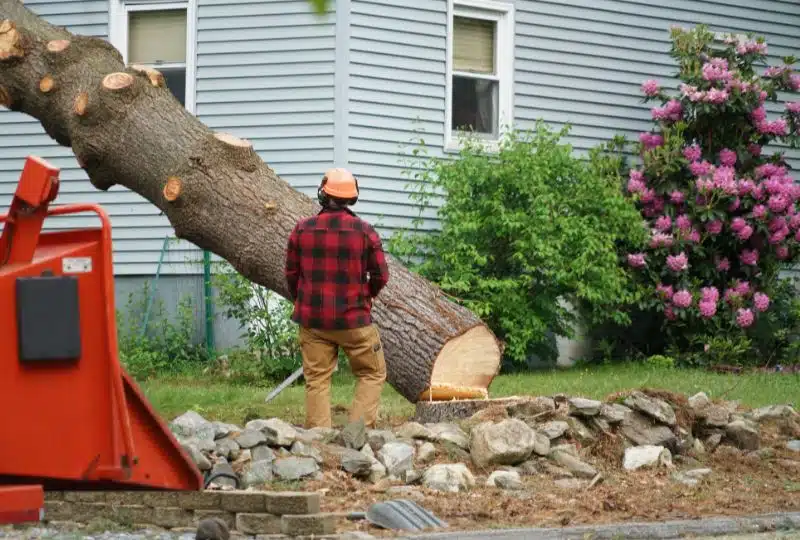
At first glance, it may seem easy to identify when a dead, dying, or sick tree poses a threat and needs to be cut down. Unfortunately, the signs aren’t always as obvious as we think they’d be.
To help you keep yourself and your home safe, read on to learn how to tell when it’s time to cut down a tree.
Epicormic shoots are tiny branches that grow from epicormic buds underneath the bark of a tree. If you notice these tiny sprouts suddenly budding from the trunk, it’s likely that this tree is in distress. These epicormic shoots indicate injury, soil compaction, or over-exposure to the sun.
Trees that are leaning close to your home or that are too close to a power line pose a serious threat. A shift in environment, a change in tree health, or an electric spark can damage your home or your property. If you have a tree in a precarious position, you should consider removing it.
Structural damage can occur for many different reasons, but it looks similar on most trees. Storm damage is typically very easy to identify, but rotting can be a little more complicated to pinpoint.
A hollowing trunk or peeling bark is the easiest way to identify internal structural damage, but this sort of damage isn’t always apparent. Rot can also appear as fungi growing on the tree itself or around the base of the tree. You should also look for pests such as carpenter ants, bark beetles, aphids, or copious amounts of other insect larvae.
Image Source: pixabay.com
One of the most common signs a tree is about to fall is the presence of damaged roots. While this is technically considered another sign of structural damage, it deserves its own section as it can take on a few different forms.
For example, fungus around the base of the tree indicates dead or dying roots. Leaf scorch also typically indicates severe root damage, as water is not being transported throughout the tree. Additionally, new lumps and bumps in the earth surrounding the base of the tree indicate root damage or overgrowth.
Now that you know how to tell when it’s time to cut down a tree, you can protect your home from the dangers of unsafe trees. Just remember to always contact a removal specialist before trying to remove any trees on your own. Improper removal can put you and your home in danger, and it’s always better to be safe than sorry.
You spend a lot of time in your home, so it’s important to create a…
If you love a modern house vibe, you can find several easy ways to update…
Are you looking to spruce up your home without breaking the bank? Home improvements don’t…
Florida, also known as the Sunshine State, boasts a vibrant real estate market filled with…
A backyard fireplace is the perfect feature to take any outdoor space up a notch.…
The kitchen, often referred to as the heart of a home, is where both meals…